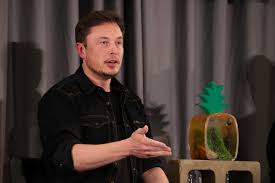(Reuters) - The prominent short-seller Andrew Left has sued Tesla Inc (TSLA.O) and its Chief Executive Elon Musk, saying Musk fraudulently engineered his since-abandoned plan to take Tesla private to “burn” investors hoping the electric car company’s stock price would fall.
Left, whose reports at Citron Research often push stock prices lower, said in his proposed class-action complaint on Thursday that Musk’s issuance of materially false and misleading information harmed short-sellers like himself, as well as those hoping Tesla’s stock price would rise.
The shareholder lawsuit is one of at least seven targeting Musk since he stunned investors by announcing on Twitter on Aug. 7 that he might take Tesla private for $420 per share, in a $72 billion transaction for which “funding” had been “secured.”
That announcement drove Tesla’s share price up more than 13 percent from its close the prior day. Musk announced on Aug. 24 that Tesla would stay public.
Tesla did not respond to requests for comment on Left’s lawsuit, which was filed in San Francisco federal court.
Short-sellers borrow shares they believe are overpriced, sell them, and then repurchase shares later at what they hope will be lower prices to make profits.
Known as an activist investor, Left was among the first short-sellers to challenge Canadian drug company Valeant, which he called a “pharmaceutical Enron” after the failed energy company, before its stock price plunged amid worries about its business practices and regulatory probes.
Musk has long used Twitter to criticize short-sellers, and Left said his conduct violated federal securities laws.
“Defendant Musk artificially manipulated the price of Tesla securities with objectively false tweets in order to ‘burn’ the company’s short-sellers,” Left said.
“In the succeeding days, the truth regarding the supposedly ‘secure’ financing needed to effectuate the going-private transaction began to emerge, exposing the fraudulent scheme,” he added.
The proposed class period runs from Aug. 7 to Aug. 17, over which time Left said he bought and sold many millions of dollars of Tesla shares.
That period ended after the New York Times published an interview in which Musk, who owns about one-fifth of Tesla, described severe stress he faced running the Palo Alto, California-based company.
Finally, on the evening of Aug. 24, a Friday, Musk, by then facing U.S. Securities and Exchange Commission scrutiny into the factual accuracy of his "secured" tweet, blogged
here that Tesla would remain public, citing investor resistance.
“The sentiment, in a nutshell, was ‘please don’t do this,’” he wrote.
Tesla shares rose 21 cents to $280.95 in Thursday trading. They have fallen 27 percent from their Aug. 7 intraday high of $387.46.
The case is Left v Tesla Inc et al, U.S. District Court, Northern District of California, No. 18-05463.








